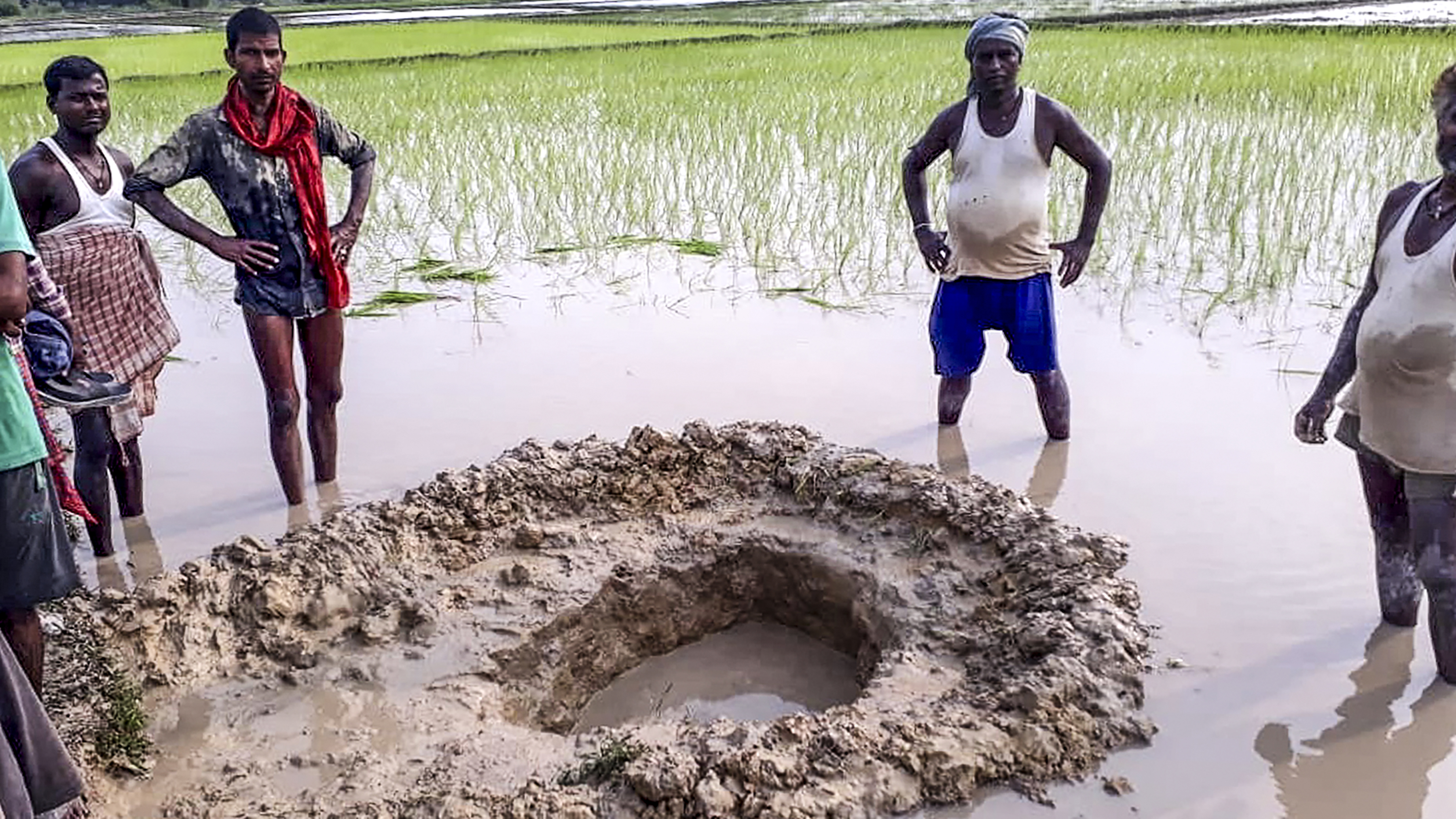Football-Size Meteorite May Have Landed in an Indian Rice Field

A small meteorite may have crashed into a rice field in eastern India on Monday (July 22).
The strange rock, which weighed nearly 29 pounds (14 kilograms) and was the size of a football, created an imprint in the muddy waters of the rice paddy in Mahadeva village in Bihar, according to CNN.
It's currently being held at the Bihar Museum but will soon be moved to the Srikrishna Science Center in Bihar, so that experts can figure out whether it's an actual meteorite or just a plain old rock, according to a statement from the Chief Minister of Bihar's office.
Meteorites are space rocks that survive the journey through our fiery atmosphere and fall to Earth, according to NASA. They typically have magnetic properties because they are composed of, in part, iron-nickel metal. This potential meteorite was also found to have magnetic properties, according to the statement. [Fallen Stars: A Gallery of Famous Meteorites]
Our planet is bombarded every day with over 100 tons (90 metric tons) of dust and sand-size meteorites, but larger objects are rarer. About once a year, an asteroid the size of a car hits the atmosphere and creates a fireball (such as the one that raced through Canadian skies on Wednesday (July 24)), burning up before it hits the ground, according to NASA.
Every 2,000 years or so, a football-field-size meteorite hits the planet and causes major local damage. Every couple of million years or so, a truly massive object comes along with the potential to destroy all human civilization.
- Space Rocks! Photos of Meteorites for Sale
- Photo Gallery: Images of Martian Meteorites
- In Photos: The Impact Craters of North America
Originally published on Live Science.
Get the Space.com Newsletter
Breaking space news, the latest updates on rocket launches, skywatching events and more!
Join our Space Forums to keep talking space on the latest missions, night sky and more! And if you have a news tip, correction or comment, let us know at: community@space.com.


